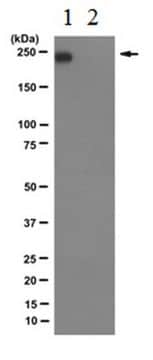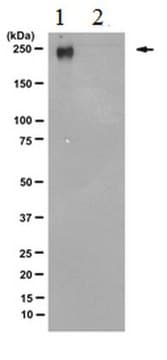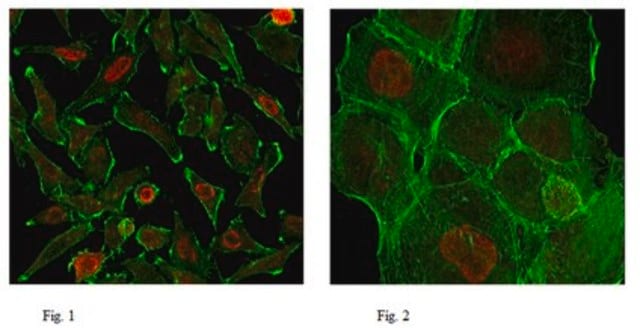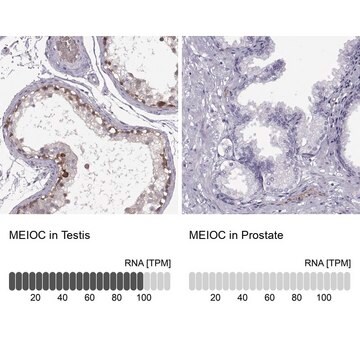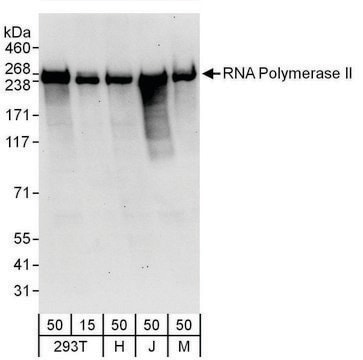04-1571
Anti-RNA polymerase II subunit B1 (phospho CTD Ser-2) Antibody, clone 3E10
clone 3E10, from rat
Synonym(s):
DNA-directed RNA polymerase II A, DNA-directed RNA polymerase II largest subunit, RNA polymerase II 220 kd subunit, DNA-directed RNA polymerase II subunit A, DNA-directed RNA polymerase III largest subunit, RNA polymerase II subunit B1, RNA-directed RNA
About This Item
Recommended Products
biological source
rat
Quality Level
antibody form
purified immunoglobulin
antibody product type
primary antibodies
clone
3E10, monoclonal
species reactivity
mouse
species reactivity (predicted by homology)
human (based on 100% sequence homology)
technique(s)
ChIP: suitable
ELISA: suitable
western blot: suitable
isotype
IgG1κ
NCBI accession no.
UniProt accession no.
shipped in
wet ice
target post-translational modification
phosphorylation (pSer2)
Gene Information
human ... POLR2B(5431)
General description
Specificity
Immunogen
Application
Epigenetics & Nuclear Function
Epigenetics & Nuclear Function
Transcription Factors
RNA Metabolism & Binding Proteins
Quality
Western Blot Analysis: 1 µg/ml of this antibody detected RNA polymerase II CTD on 10 µg of γ-PPase untreated and treated NIH/3T3 cell lysates.
Target description
Physical form
Storage and Stability
Analysis Note
γ-protein phosphatase (γ-Ppase) untreated and treated NIH/3T3 cell lysates
Other Notes
Disclaimer
Not finding the right product?
Try our Product Selector Tool.
Storage Class Code
12 - Non Combustible Liquids
WGK
WGK 1
Flash Point(F)
Not applicable
Flash Point(C)
Not applicable
Certificates of Analysis (COA)
Search for Certificates of Analysis (COA) by entering the products Lot/Batch Number. Lot and Batch Numbers can be found on a product’s label following the words ‘Lot’ or ‘Batch’.
Already Own This Product?
Find documentation for the products that you have recently purchased in the Document Library.
Our team of scientists has experience in all areas of research including Life Science, Material Science, Chemical Synthesis, Chromatography, Analytical and many others.
Contact Technical Service

